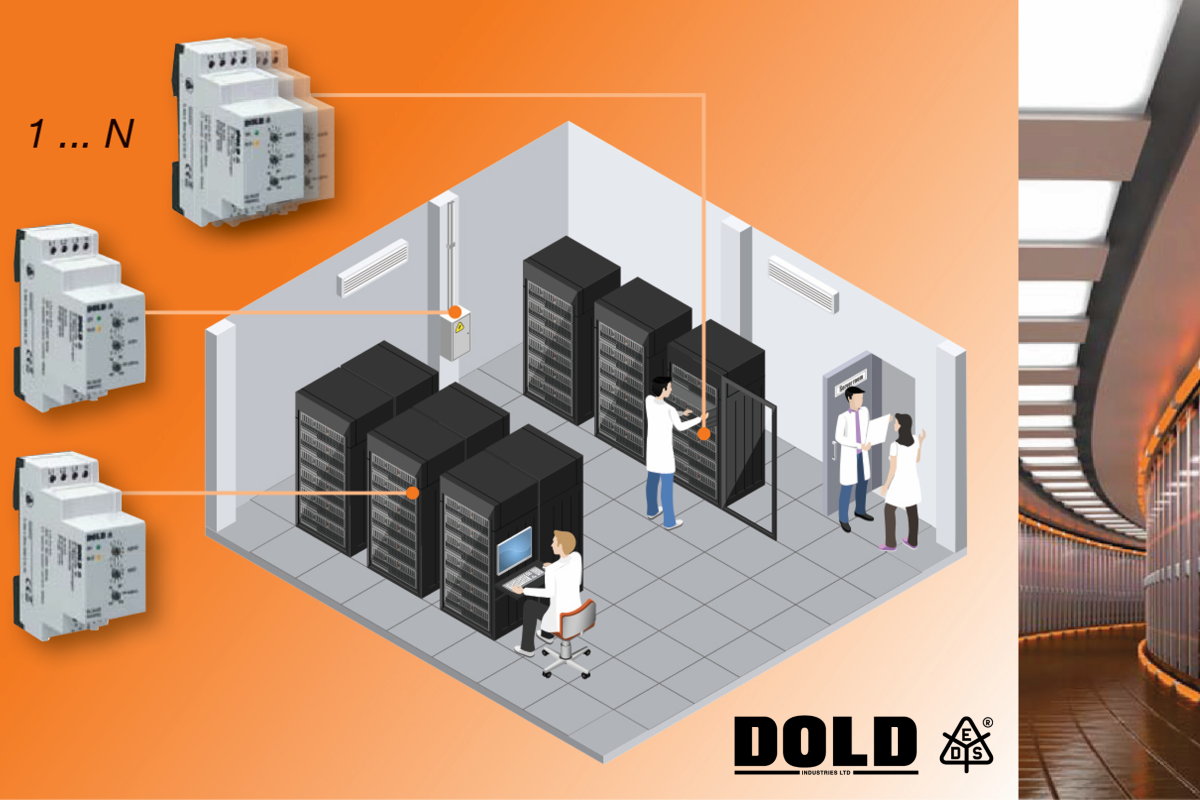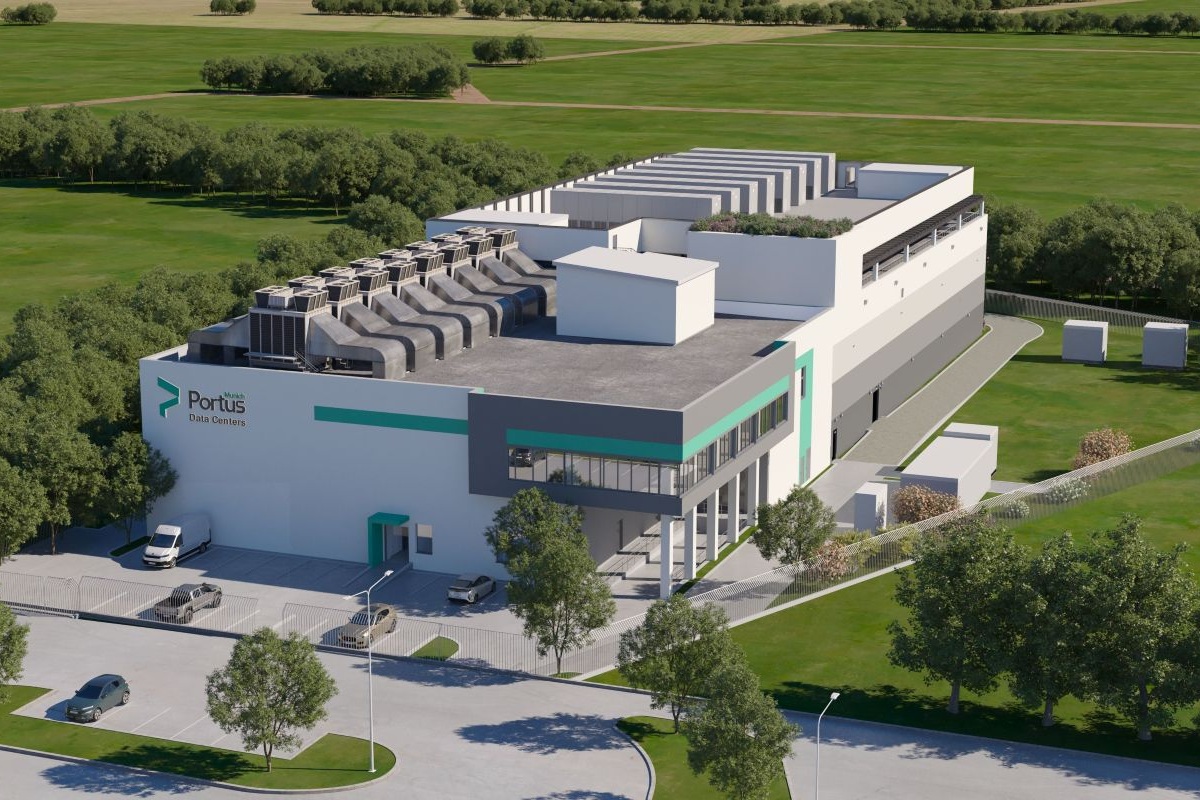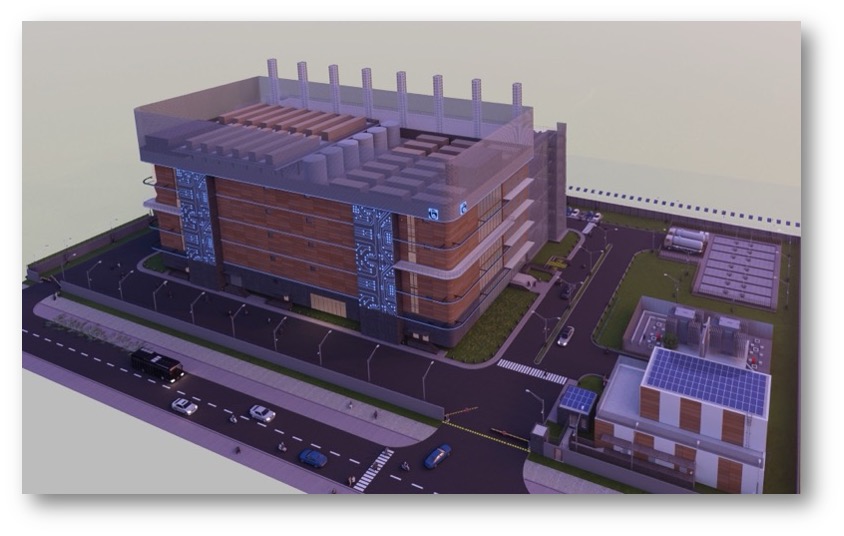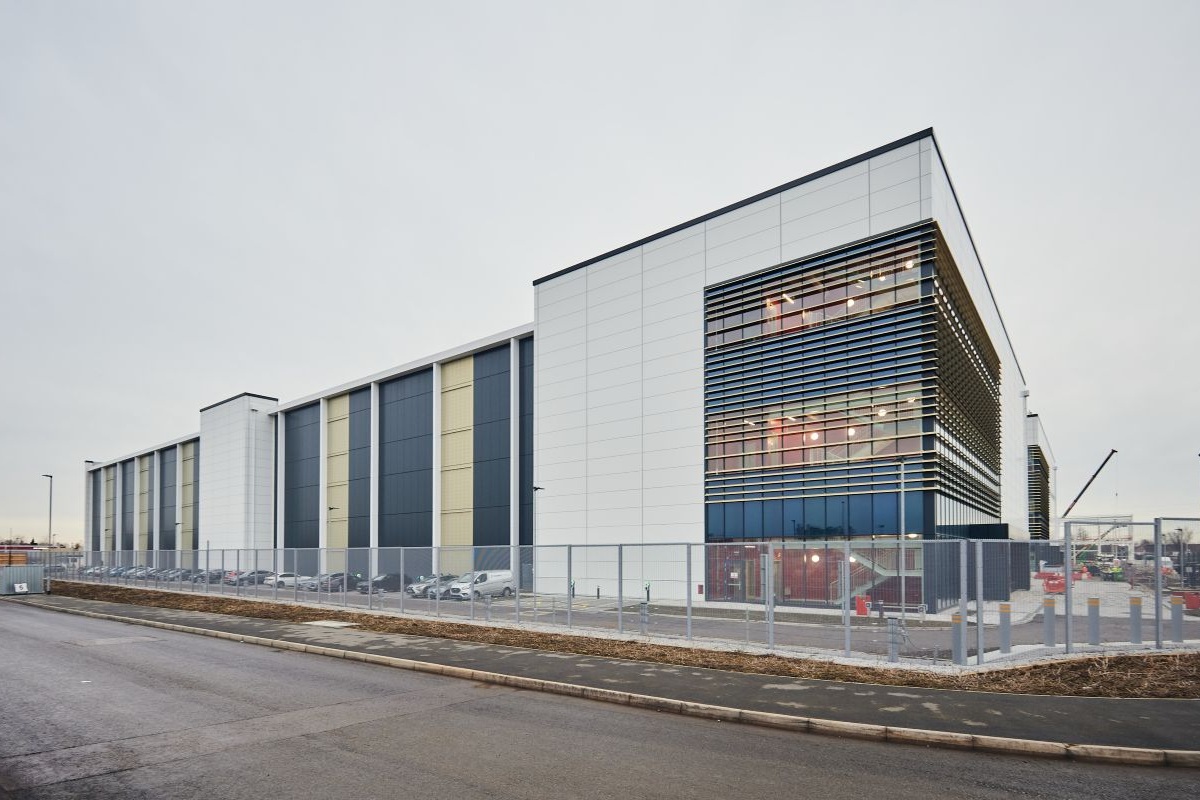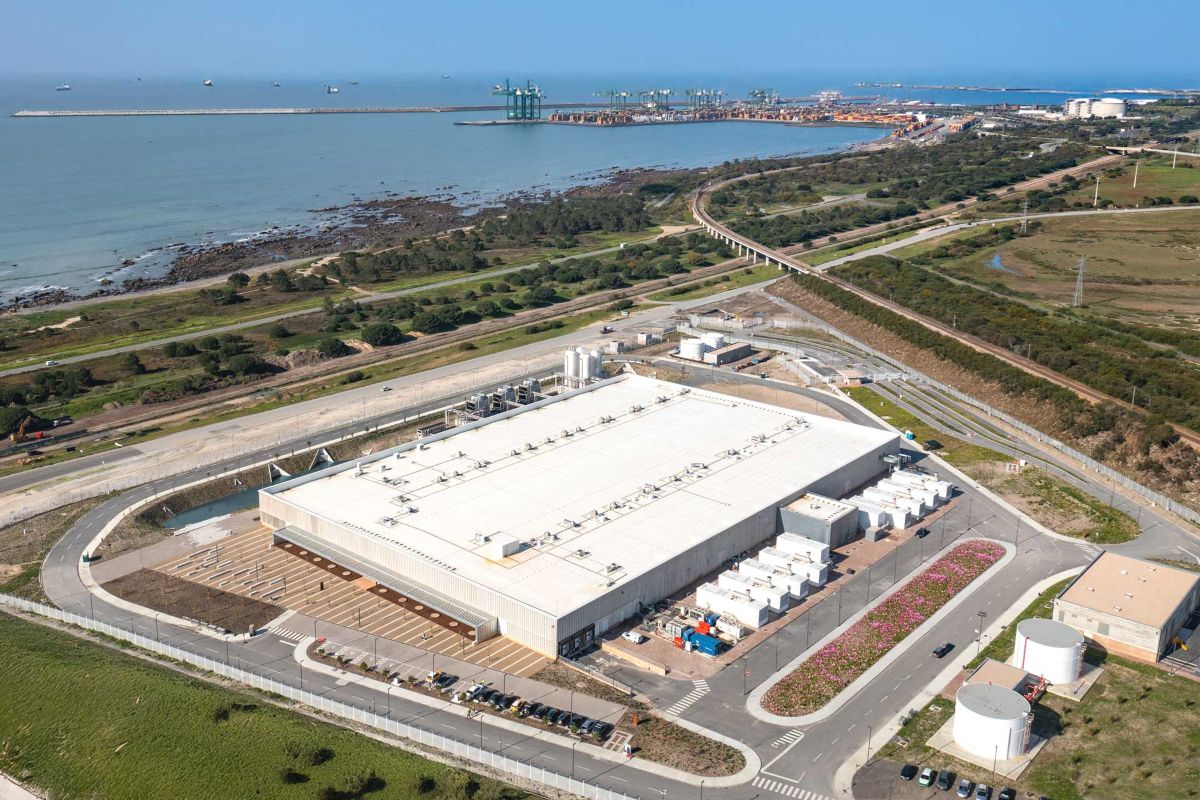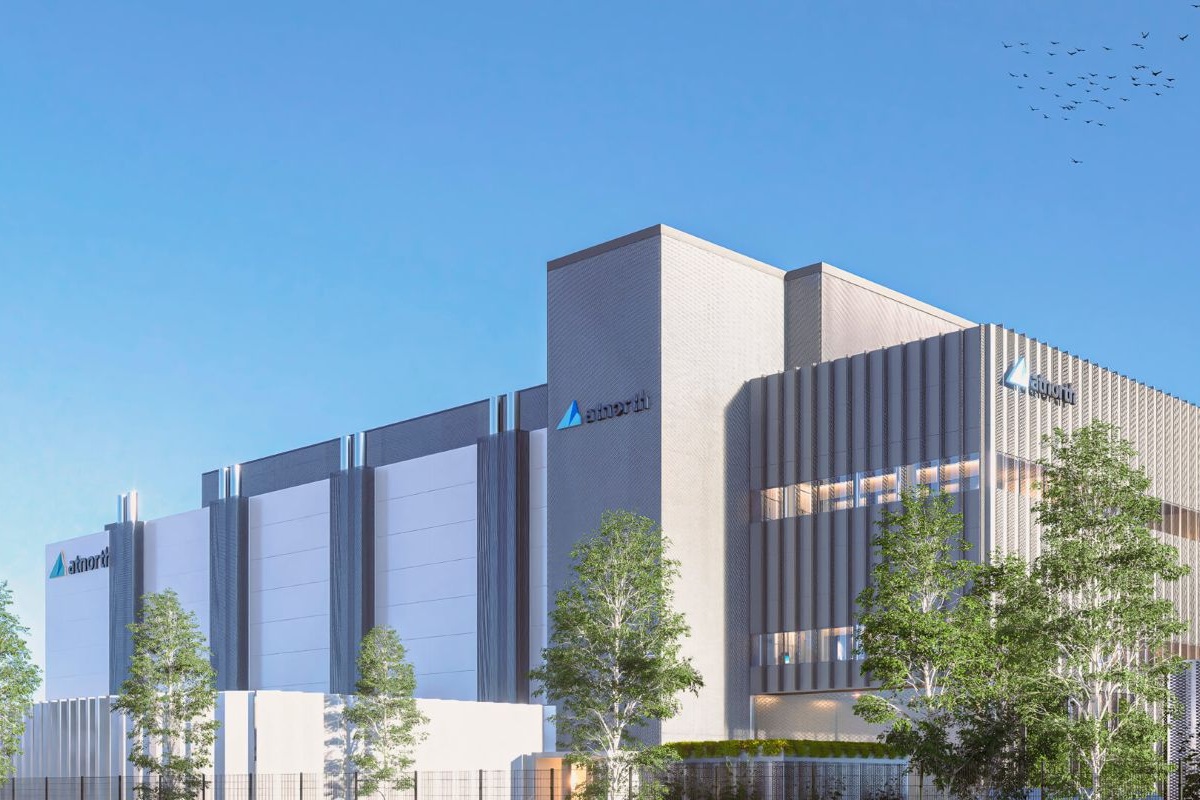Data Centre Operations: Optimising Infrastructure for Performance and Reliability
Artificial Intelligence in Data Centre Operations
Data
Data Centre Operations: Optimising Infrastructure for Performance and Reliability
Data Centres
VAST Data unveils its operating system for the 'thinking machine'
VAST Data, a technology company focused on artificial intelligence and deep learning computing infrastructure, today announced the result of nearly a decade of development with the unveiling of the VAST AI Operating System (OS), a platform purpose-built for the next wave of AI breakthroughs.
As AI redefines the fabric of business and society, the industry again finds itself at the dawn of a new computing paradigm – one where great numbers of intelligent agents will reason, communicate, and act across a global grid of millions of GPUs that are woven across edge deployments, AI factories and cloud data centres. To make this world accessible, programmable, and operational at extreme scale, a new generation of intelligent systems requires a new software foundation.
The VAST AI OS is the product of nearly ten years of engineering with the aim to create an intelligent platform architecture that can harness the new generation of AI supercomputing machinery and unlock the potential of AI at scale. The platform is built on VAST’s Disaggregated Shared-Everything (DASE) architecture, a parallel distributed system architecture – making it possible to parallelise AI and analytics workloads, federate clusters into a unified computing and data cloud, and then feed new AI workloads with high amounts of data from one tier of storage. Today, DASE clusters support over 1 million GPUs around the world in many of the world’s most data-intensive computing centres.
The scope of the AI OS is broad and is intended to consolidate disparate legacy IT technologies into one modern offering.
“This isn’t a product release — it’s a milestone in the evolution of computing,” says Renen Hallak, Founder & CEO of VAST Data. “We’ve spent the past decade reimagining how data and intelligence converge. Today, we’re proud to unveil the AI Operating System for a world that is no longer built around applications — but around agents.”
The AI OS consists of every aspect of a distributed system to run AI at a global scale: a kernel to run platform services on from private to public cloud, a runtime to deploy AI agents with, eventing infrastructure for real-time event processing, messaging infrastructure, and a distributed file and database storage system that can be used for real-time data capture and analytics.
In 2024, VAST previewed the VAST InsightEngine – a service that extracts context from unstructured data using AI embedding tools. If the VAST InsightEngine prepares data for AI using AI, VAST AgentEngine is how AI now comes to life with data – an auto-scaling AI agent deployment runtime that aims to equip users with a low-code environment to build workflows, select reasoning models, define agent tools, and operationalise reasoning.
The AgentEngine features a new AI agent tool server that provides support for agents to invoke data, metadata, functions, web search, or other agents using them as MCP-compatible tools. AgentEngine allows agents to assume multiple personas with different purpose and security credentials, and provides secure, real-time access to different tools. The platform’s scheduler and fault-tolerant queuing mechanisms are also intended to ensure agent resilience against machine or service failure.
Just as operating systems ship with pre-built utilities, the VAST AgentEngine will feature a set of open-source agents that VAST will release (one per month). Some personal assistants will be tailored to industry use cases, whereas others will be designed for general purpose use. Examples include:
● A reasoning chatbot, powered by all of an organisation’s VAST data
● A data engineering agent to curate data automatically
● A prompt engineer to help optimise AI workflow inputs
● An agent agent, to automate the deployment, evaluation, and improvement of agents
● A compliance agent, to enforce data and activity level regulatory compliance
● An editor agent, to create rich media content
● A life sciences researcher, to assist with bioinformatic discovery
In the spirit of enabling organisations to build on the VAST AI OS, VAST Data will be hosting VAST Forward, a series of global workshops, both in-person and online, throughout the year. These workshops will include training on components of the OS and sessions on how to develop on the platform.
For more from VAST, click here.
Joe Peck - 23 May 2025
Artificial Intelligence in Data Centre Operations
Data Centre Operations: Optimising Infrastructure for Performance and Reliability
Data Centre Security: Protecting Infrastructure from Physical and Cyber Threats
News
House of Lords AI summit highlights cyber threats
Technology industry leaders gathered in the House of Lords yesterday for a high-profile debate on the transformative role artificial intelligence (AI) will play in the UK jobs market.
The discussion, chaired by Steven George-Hilley of Centropy PR, brought together experts to address key industry challenges, including the digital skills shortage and AI’s potential to enhance compliance and accelerate digital transformation across key areas of the UK economy.
The debate highlighted the growing role of AI in reshaping traditional job roles and powering a new wave of relentless cyber threats which could damage British businesses.
Key speakers, including Richard Cuda of Kasha, discussed the role AI and digital technology can play in helping entrepreneurs launch their own business.
Leigh Allen, Strategic Advisor, Cellebrite, says, "In a world where police forces are under increasing strain to combat crime and national security threats, AI technology represents a key enabler in unlocking digital evidence and significantly reducing investigation times. Cellebrite delivers secure, ethical access to digital evidence, using AI to accelerate investigations while closing the digital skills gap for modern law enforcement. We don’t just respond to digital threats—we equip agencies to lead with confidence in a complex, tech-driven world."
Dr Janet Bastiman, Chief Data Scientist, Napier AI, comments, "Financial crime is one of the biggest threats facing the UK economy right now, and in AI we have the answer. AI-driven anti-money laundering solutions have the capacity to save UK financial institutions £2.2 billion each year, helping to bolster compliance processes, improve the accuracy of transaction screening, and monitor transaction behaviour to more effectively identify criminal networks."
Linda Loader, Software Development Director, Resonate, suggests, "AI has the potential to significantly enhance operations in the rail industry by enabling faster and more efficient services. But this must be underpinned by quality data to drive innovative solutions that prioritise security and robust protection for our critical national infrastructure. By exploring smaller AI use cases now, we can build a solid foundation and understanding for more extensive, secure transport applications in future."
Chris Davison, CEO, NavLive, mentions, "By using cutting edge AI and robotics technology to create automated 2D and 3D models of buildings in real time, we can make retrofits, brownfield developments more efficient and contribute to sustainable building practices. NavLive saves architects, engineers and construction professionals time and money, by providing accurate real time spatial data across the lifecycle of a building."
Richard Bovey, Chief for Data, AND Digital, states, "The AI winners are the businesses that have invested the most in AI experimentation, underpinned by years of strong data foundations, meanwhile, SMEs are quickly watching a widening AI gap. But all isn’t lost, investing in data and modern tooling can stop the slide, helping businesses to keep pace and preventing a significant competitive disadvantage from taking over."
Arkadiy Ukolov, Co-Founder and CEO, Ulla Technology, says, "As AI adoption continues to skyrocket, we must ensure that privacy and data security remain a critical component of development. Most of the popular AI tools send data to third-party AI providers, which may use client data to train models. This is unacceptable for sensitive meeting discussions and confidential documents, as it opens them up to data leaks. Placing safety and ethics at the centre of the discussion is the only route that we can take forward as AI evolves."
For more on cyber security, click here.
Joe Peck - 21 May 2025
Data
Data Centre Infrastructure News & Trends
Data Centre Operations: Optimising Infrastructure for Performance and Reliability
Data Centre Software for Smarter Operations
News in Cloud Computing & Data Storage
Hitachi Vantara launches Virtual Storage Platform 360
Hitachi Vantara, the data storage, infrastructure, and hybrid cloud management subsidiary of Hitachi, today announced the launch of Virtual Storage Platform 360 (VSP 360), a unified management software solution designed to help customers simplify data infrastructure management operations, improve decision-making, and the delivery of data services. With support for block, file, object, and software-defined storage, VSP 360 consolidates multiple management tools and aims to enable IT teams, including those with limited storage expertise, to more efficiently control hybrid cloud deployments, gain AIOps predictive insights, and simplify data lifecycle governance.
Organisations today are struggling to manage sprawling data environments spread across disparate storage systems, fragmented data silos, and complex application workloads, all while grappling with overextended IT teams and rising demands for compliance and AI readiness. A recent survey showed AI has led to a dramatic increase in the amount of data storage that businesses require, with the amount of data expected to increase 122% by 2026. The survey also revealed that many IT leaders are being forced to implement AI before their data infrastructure is ready to handle it, with many embarking on a journey of experimentation, hoping to find additional ways to recover some of the cost of their investments.
VSP 360 seeks to address these obstacles by integrating data management tools across enterprise storage to monitor key performance indicators, including storage capacity utilisation and overall system health, helping to deliver optimal performance and efficient resource management. It intends to improve end-to-end visibility, leveraging AIOps observability to break down data silos, as well as streamlining the deployment of VSP One data services.
“VSP 360 represents a bold step forward in unifying the way enterprises manage their data,” says Octavian Tanase, Chief Product Officer, Hitachi Vantara. “It’s not just a new management tool—it’s a strategic approach to modern data infrastructure that gives IT teams complete command over their data, wherever it resides. With built-in AI and automation and by making it available via SaaS, Private, or via your mobile phone, we're empowering our customers to make faster, smarter decisions and eliminate the traditional silos that slow innovation.”
“VSP 360 gives our customers the unified visibility and control they’ve been asking for,” claims Dan Pittet, Senior Solutions Architect, Stoneworks Technologies. “The ability to manage block, file, object, and software-defined storage from a single AI-driven platform helps streamline operations and reduce complexity across hybrid environments. It’s especially valuable for IT teams with limited resources who need to respond quickly to evolving data demands without compromising performance or governance.”
"VSP 360 hits the mark for what modern enterprises need," states Ashish Nadkarni, Group Vice President and General Manager, Worldwide Infrastructure Research, IDC. "It goes beyond monitoring to deliver true intelligence across the storage lifecycle. The solution's robust data resiliency helps businesses maintain continuous operations and protect their critical assets, even in the face of unexpected disruptions. By integrating advanced analytics, automation, and policy enforcement, Hitachi Vantara is giving customers the agility and resilience needed to thrive in a data-driven economy.”
For more from Hitachi, click here.
Joe Peck - 20 May 2025
Colocation Strategies for Scalable Data Centre Operations
Data Centre Operations: Optimising Infrastructure for Performance and Reliability
Data Centres
News
DOLD's energy monitoring keeps colocation costs in-check
DOLD Industries UK, a trusted provider of network monitoring and functional safety solutions across industrial and infrastructure sectors, has launched the RL9405 Smart Energy Meter – enabling colocation customers to gain accurate control over rack-level energy use, meaning they only pay for what you use.
The ultra-compact RL9405 (just 35mm wide) fits easily into dense server racks, offering precise, real-time energy monitoring – without complex wiring or infrastructure upgrades. Fast to deploy, it enables fair, usage-based billing, pinpoints system inefficiencies, optimises workloads, and helps avoid costly overuse.
Track live and historical energy data, detect anomalies, and flag potential issues early – enabling smarter preventive maintenance and reduced downtime. Even during power outages, the RL9405 securely stores energy data, ensuring critical insights are never lost.
With Modbus TCP/RTU connectivity, remote monitoring is simple and seamless, integrating with existing systems to optimise operational efficiency. For more information, click here.
For more from DOLD Industries, click here.
Simon Rowley - 14 May 2025
Artificial Intelligence in Data Centre Operations
Cyber Security Insights for Resilient Digital Defence
Data Centre Operations: Optimising Infrastructure for Performance and Reliability
Data Centre Security: Protecting Infrastructure from Physical and Cyber Threats
News
Scalable Network Attached Solutions for Modern Infrastructure
AI set to supercharge cyber threats by 2027
The UK’s National Cyber Security Centre (NCSC) has released a landmark cyber threat assessment, warning that rapid advances in artificial intelligence (AI) will make cyber attacks more frequent, effective and harder to detect by 2027. The digital divide between organisations with the resources to defend against digital threats, and those without, will inevitably increase.
Published on the opening day of CYBERUK, the UK’s flagship cyber security conference, the report outlines how both state and non-state actors are already exploiting AI to increase the speed, scale and sophistication of cyber operations. Generative AI is enabling more convincing phishing attacks and faster malware development. This significantly lowers the barrier to entry for cyber crime and cyber intelligence.
Of particular concern is the rising risk to the UK’s democratic processes, Critical National Infrastructure (CNI) and commercial sectors. Advanced language models and data analysis capabilities are used to craft highly persuasive content, resulting in more frequent attacks that are difficult to detect.
Andy Ward, SVP International at Absolute Security, says, “While AI offers significant opportunities to bolster defences, our research shows 54% of CISOs feel unprepared to respond to AI-enabled threats. That gap in readiness is exactly what attackers will take advantage of."
"To counter this, businesses must go beyond adopting new tools - they need a robust cyber resilience strategy built on real-time visibility, proactive threat detection, and the ability to isolate compromised devices at speed.”
This latest warning forms part of the UK Government’s wider cyber strategy after announcing the new AI Cyber Security Code of Practice earlier this year. This will form the basis of a new global standard to secure AI and ensure national security keeps pace with technological evolution, safeguarding the country against emerging digital threats.
For more from NCSC click here.
DCNN staff - 8 May 2025
Colocation Strategies for Scalable Data Centre Operations
Data Centre Operations: Optimising Infrastructure for Performance and Reliability
Data Centres
News
Portus Data Centers announces additional facility for Munich
Portus Data Centers has announced the further expansion of its Munich colocation campus with the construction of an additional 5.5 MW facility - Portus Data Centers Munich 2 (MUC2). This will add a further 2,200 square metres of white space and increase the total IT load capacity available to 7 MW.
Construction of the new Tier III+ carrier-neutral data centre has already started on the Munich campus and initial capacity will be delivered in late 2026. The new data centre will be fully EnEfG (German Energy Efficiency law) compliant and will cater for workloads ranging from normal power densities all the way to AI and HPC workloads including ultra-high density using liquid cooling. As such Portus has developed an AI Native reference design that makes the data centre fully future-proof. Providing energy efficiencies of PUE 1.2 or lower, it will use 100% renewably sourced power and the latest cooling technologies.
Portus Data Centers Munich serves the largest concentration of GDP in Germany, the company reports, meeting the growing digital requirements of local enterprises and service providers alongside multinational providers requiring compliance with data sovereignty regulations as well as secure, compliant, scalable and low latency facilities.
"With the investment and expansion at the Munich site we are not only setting technological but also ecological standards,” says Marco Kain, Managing Director, Portus Data Centers Munich. “Our new data centre is more than just a building - it is a clear commitment to digital sovereignty, sustainability and innovative strength in Germany. We are creating a platform on which our customers can shape their digital future, securely and reliably.”
Adriaan Oosthoek, Chairman, Portus Data Centers, adds, “Our new development at Portus Data Centers Munich marks an important milestone and aligns with our buy and build growth strategy for the DACH region. It is therefore only a first step, and we will continue to add capacity as necessary across the region to meet the strong demand for sustainable high-performance, low-latency IT infrastructure.”
Eoghan Cremin, Operations Director at Mercury Construction, comments, “We are proud to continue our partnership with Portus on this significant project following the successful completion of the pre-construction phase. The main contract marks an exciting next step and we look forward to bringing our extensive experience, innovative approach and cutting-edge technology to deliver this advanced data centre extension in Munich.
“Our team is fully committed to ensuring a seamless integration with the existing facility, managing complex logistics within a constrained site, and delivering to the highest standards while remaining considerate of the local community and environment. We value the trust Portus Data Centers has placed in Mercury and are excited to continue working together to bring this project to life.”
For more from Portus Data Centers, click here.
Simon Rowley - 8 May 2025
Data Centre Infrastructure News & Trends
Data Centres
Hyperscale Data Centres: Scale, Speed & Strategy
Innovations in Data Center Power and Cooling Solutions
News
Techno Digital to power India’s digital infrastructure
Techno Electric & Engineering Company Ltd. (TEECL), one of India’s most trusted names in power infrastructure for over four decades, has officially launched Techno Digital Infra Pvt, its wholly-owned digital infrastructure arm.
Backed by an ambitious investment plan of $1 billion, Techno Digital plans an integrated network of hyperscale and edge data centres targeting a cumulative capacity of 250 MW spread across the country. This strategic move marks a transformative leap to revolutionise India’s digital economy, aligned with the Government of India’s flagship programme, Digital India.
Rooted in strong credentials of engineering, procurement and construction excellence, TEECL is leveraging its deep domain expertise in power infrastructure and sustainability to build an efficient, reliable, and eco-conscious network of data centres. The launch of Techno Digital underscores the Group’s vision to become a cornerstone in India’s data revolution - bringing scalable, secure, and low-latency digital infrastructure to metro and non-metro regions alike.
“The decision to enter the digital infrastructure space is both timely and visionary,” says Padam Prakash Gupta, Managing Director, Techno Electric & Engineering. “India’s data economy is poised for exponential growth, and with our legacy in power infrastructure and EPC, we see ourselves as natural enablers of this transformation. Techno Digital is not just a business venture - it’s a national mission to bridge the digital divide and power a truly connected India.”
The journey begins at Chennai, where Techno is building a 36 MW hyperscale data centre within SIPCOT IT Park, Siruseri. This Rated-3 facility spans approximately two Lakh square foot, houses up to 2,400 racks, and integrates renewable energy with Battery Energy Storage Systems (BESS) for continuous sustainability, adiabatic cooling for water efficiency (WUE), 25% green cover and a facility design PUE of 1.35. Future locations for hyperscale facilities include Kolkata and Noida, positioning Techno Digital as a key player in supporting India’s digital growth.
“We are not just building data centres, we are powering India’s digital revolution,” adds Amit Agrawal, President, Techno Digital. “Our hybrid strategy integrating hyperscale and edge will redefine how data is hosted, processed, and delivered. Whether it’s AI, OTT, fintech, or governance, our infrastructure is designed for the next decade of digital growth. We are empowering our ecosystem partners to offer unique solutions around cloud, security and managed services, thereby ensuring cutting edge technology’s ubiquitous availability and affordability.
As part of its nation-building vision, Techno has partnered with RailTel Corporation of India, a Government of India enterprise under the Ministry of Railways, to develop edge data centres in 102 cities across 23 Indian states. This landmark project will be the largest deployments of its kind, bringing low-latency computing closer to users in Tier 2 and Tier 3 cities, empowering sectors such as AI, BFSI, telecom, OTT, e-sports, healthcare, e-governance, and manufacturing.
“This partnership with RailTel embodies our core belief that digital infrastructure should be democratised to transform India into a digitally empowered society and knowledge-based economy,” says Ankit Saraiya, Director & CEO, Techno Electric & Engineering. “From AI workloads and 5G to cloud-native applications, we’re enabling India to process data where it’s consumed, reducing latency, energy use, and cost. Our edge deployment model is not just technically superior, it’s a complete ecosystem that encompasses all aspects of a digital infrastructure. We are honoured to be RailTel’s trusted partner in this national mission.”
Simon Rowley - 7 May 2025
Data Centre Business News and Industry Trends
Data Centre Training & Certification Programs
Data Centres
Hyperscale Data Centres: Scale, Speed & Strategy
News
Yondr and CBRE to create data centre apprenticeship programme
Yondr Group, a global developer, owner and operator of hyperscale data centres, has teamed up with CBRE, a real estate services company with 25 years’ experience in integrated data centre operations, to create an apprenticeship programme that will be rolled out to all Yondr data centre projects worldwide.
The programme reiterates both companies’ commitment to developing the skills that the data centre industry needs around the world. As Yondr’s global data centre operations partner, CBRE will collaborate with the company to facilitate the scheme. Apprentices will be recruited for each Yondr data centre once the asset has moved into the operational phase and will work with the Yondr and CBRE teams on site, while also receiving training towards certification in disciplines such as administration, critical environment engineering and management.
Recruitment and training for the apprentices globally will align with local apprenticeship models for each location, drawing on relationships with local colleges and training providers. The programme will also offer professional experience and mentoring from Yondr and CBRE colleagues to empower apprentices on their path toward a successful future in the data centre industry.
The first project to benefit from the apprenticeship programme is Yondr’s London data centre campus in Slough, where one apprentice is already in post and a second is currently being recruited. At this 100MW site, where the campus will comprise three data centres, two apprentices will be recruited for each data centre building.
With Yondr’s Netherlands project already live, Frankfurt recently handed over, and progress continuing at pace at the company’s projects across North America, Europe, and Asia, the apprenticeship programme is set to develop exponentially as data centre assets come online. The company anticipates recruiting four apprentices in Slough, and two each in the Netherlands, Germany, the US and Malaysia by the end of 2025.
Paul Hood, Yondr’s COO - Global Data Center Operations, comments, “As a former apprentice myself, I have always been an advocate of this career route and recognised the value of apprenticeships in selecting talent that is ambitious and pragmatic with a can-do attitude.
“With the partnership of CBRE and support of training providers, we can help guide future talent into the skilled professionals of tomorrow. I am very excited that Yondr will not only be shaping young people’s careers, but also inspiring them to play a vital role in operating the digital infrastructure on which we all rely.”
Andrew Chilcott, Global Alliance Director for CBRE’s Data Centre Solutions business, adds, “The task of operating data centres is distinct from running any other commercial property. It’s vital that the data centre sector nurtures bespoke talent and highlights the potential for varied and exciting careers in our dynamic industry to attract high calibre candidates.
“With our joint investment in this global apprenticeship programme and our commitment to supporting the apprentices we recruit; I am certain that this will be the beginning of a very successful journey for all involved.”
Yondr’s investment in the global apprenticeship programme forms part of the company’s social impact strategy, which aims to create value and opportunity for the communities surrounding its data centres. So far, the strategy has led to a range of social impact initiatives, including STEM and employability skills training, as well as scholarship programmes in Europe and North America.
Similarly, CBRE is committed to its broader Talent Strategy, actively engaging in apprenticeship programmes with over 1,800 apprentices globally.
For more from Yondr Group, click here.
Simon Rowley - 2 May 2025
Data Centres
Hyperscale Data Centres: Scale, Speed & Strategy
News
Start Campus achieves OCP certification for Portugal data centres
Start Campus, a company focused on designing, building and operating a new generation of sustainable data centres, announced today that its operational SIN01 and planned SIN02 data centres have been officially certified as Open Compute Project (OCP) Ready v2 for Hyperscale data centres.
These are the first facilities in Southern Europe, and just the third and fourth in Europe, to meet this new benchmark. Start Campus says that the rigorous assessment underscores the company's commitment to open standards, sustainability, and scalable digital infrastructure.
The OCP Ready certification, granted by the Open Compute Project Foundation, recognises that SIN01 and SIN02 meet the highest standards set for hyperscale data centres and AI/HPC workloads. This certification is a mark of trust, providing a competitive edge and a strategic advantage by ensuring faster deployments, reduced total cost of ownership, and seamless integration with cutting-edge technologies such as AI and high-performance computing (HPC). The OCP Ready v2 facilities are designed with openness, modularity, and interoperability at their core, delivering superior energy efficiency and environmental leadership.
To achieve OCP Ready certification, Start Campus had to undergo a detailed OCP Ready v2 assessment of its operational SIN01 and planned SIN02 facilities, which assess critical factors such as logistics, site access, security, base building infrastructure, and network connectivity. These comprehensive assessments ensure the facilities meet the specific needs of hyperscale companies and align with both OCP standards and industry best practices. This certification confirms that Start Campus’ data centres are optimised to support hyperscale demands and future-proofed for the evolving digital landscape.
“OCP Ready certification means our clients can confidently deploy today’s most advanced compute infrastructure, knowing the foundation is built for tomorrow,” says Rob Dunn, CEO of Start Campus. “This achievement is not just a milestone for Start Campus, but a win for hyperscale, cloud, and AI/HPC-driven companies looking to secure their future in Europe in readily available and large-scale data centres.”
Located on the south-western edge of Europe, SINES DC is one of the continent’s most ambitious infrastructure projects. The SIN01 facility, operational since Q4 2024, delivers up to26 MW of IT capacity, while SIN02, ready to be built for delivery as early as in 2026, will add another 180 MW. These facilities are part of Start Campus’s 1.2 GW SINES Data Campus, built from the ground up to support AI-native workloads, liquid cooling, and high-density compute environments.
Both SIN01 and SIN02 are powered by 100% renewable energy and feature an innovative seawater cooling system, enabling them to operate at a Power Usage Effectiveness (PUE) of 1.1 and Water Usage Effectiveness (WUE) of 0 - impressive metrics that demonstrate Start Campus’ commitment to environmental responsibility without compromising performance.
This certification was co-led by OCP Foundation team members, Mark Dansie and Raúl Àlvarez, working within the Data Centre Facilities Project at the OCP.
Mark Dansie, OCP Ready Facilities Program Co-Lead, comments, “The certification of Start Campus’ SIN01 and SIN02 facilities as OCP Ready for Hyperscale is a pivotal moment for the European data centre landscape. By aligning with the new v2 specifications, Start Campus demonstrates how strategic facility design can deliver on the evolving demands of hyperscale deployments. It’s a blueprint for how sustainability, performance, and openness can come together to meet the future of compute.”
Raúl Àlvarez, European Market Development Manager, adds, “Start Campus’s OCP Ready v2 certification not only highlights its technical excellence, but also its alignment with the OCP Community’s vision of interoperable, efficient, and scalable data centre environments. The SIN01 and SIN02 facilities showcase how the latest global standards can be deployed locally to accelerate digital infrastructure and support the next generation of AI and cloud-native workloads.”
This news follows the successful inauguration of SIN01, the first operational facility within the company’s 1.2-gigawatt (GW) Sines Data Campus.
For more from Start Campus, click here.
Simon Rowley - 1 May 2025
Data Centre Operations: Optimising Infrastructure for Performance and Reliability
Enterprise Network Infrastructure: Design, Performance & Security
News
News in Cloud Computing & Data Storage
Nokia partners with atNorth to support cloud services in Finland
atNorth, a Nordic colocation, high-performance computing and AI service provider, has announced plans to support Nokia’s cloud infrastructure with a multi megawatt deployment at its FIN02 site in Finland (pictured above). The contract spans over 12 years and includes potential extensions totalling over 10MW.
Nokia, one of the world’s leading telecommunications and networking technology companies, is headquartered in Finland and has long utilised Finnish data centres, leveraging the country’s cool climate and renewable energy sources to ensure the sustainability of its workloads. In fact, the business was ranked as the most sustainable telecoms and communications company in the world earlier this year.
Nokia and atNorth have built a long-standing relationship through atNorth’s use of Nokia data centre switches that power its HPCaaS offering, which currently runs from its data centres in Iceland and Sweden.
Well versed in the evolving data centre landscape, Nokia was looking for a data centre partner that could accommodate its high-density infrastructure needs without compromising its environmental credentials. The business required capacity suitable for high-density workloads of more than 130kw per rack, available at speed and with the potential for future scalability.
Located in Espoo, Greater Helsinki, atNorth’s newest data centre, FIN02, runs on renewable energy and features robust power and liquid cooling capabilities. Built for scalability, its modular design supports high-performance workloads. A collaboration with Kesko Corporation enables waste heat recycling to heat a nearby store, further lowering its carbon footprint.
“atNorth was able to meet our complex technical requirements at speed without compromising on our sustainability goals,” says Marika Mentula, Vice President for Network Infrastructure North Europe at Nokia. “By helping support our cloud infrastructure at atNorth’s FIN02 data center, we can deliver high-performance infrastructure that supports our most demanding applications.”
Eyjólfur Magnús Kristinsson, CEO of atNorth, adds, “As the data centre industry continues to grow at record speed, it’s clear that businesses are increasingly seeking the full package - sustainable, secure, infrastructure that can scale rapidly. Our longstanding partnership with Nokia, rooted in the hardware demands of our HPCaaS offering and built on a shared commitment to sustainability, is a testament to that. It adds to a growing list of globally recognized companies that trust atNorth with their mission-critical data and rely on us to deliver best-in-class service.”
The news follows atNorth’s recent announcement of its heat reuse partnership with retail giant, Kesko Corporation at its FIN02 data centre in Finland. The business has two other metro sites near Helsinki, and a fourth ‘mega’ site - which is currently in development in Kouvola - is expected to be operational by the end of 2025.
For more from atNorth, click here.
Simon Rowley - 29 April 2025

Head office & Accounts:
Suite 14, 6-8 Revenge Road, Lordswood
Kent ME5 8UD
T: +44 (0)1634 673163
F: +44 (0)1634 673173



